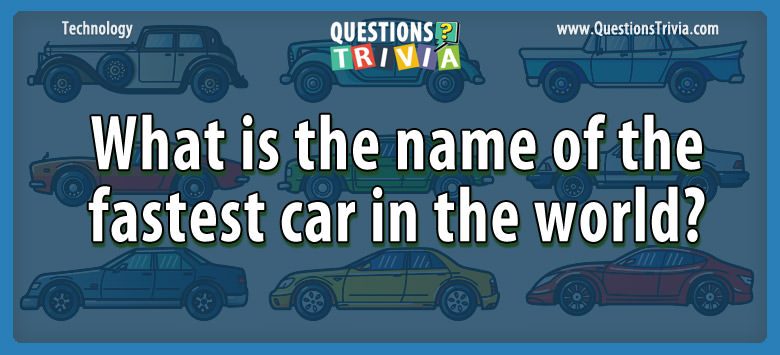
View Answer
Buggatti Veyron Super Sport.
This sports car has a 267 mph speed. Its speed can reach 60 mph in just 2.4 seconds. This super-fast car comes in various styles.

View Answer
The 1930s.
John Vincent Atanasoff, an American physicist, created the first digital computer at Lowa State College in the 1930s. He received a grant of $650 to work on this project along with the help of a graduate student Clifford Berry.

View Answer
Amjad and Basit Farooq Alvi.
In 1986, Pakistani brothers Basit and Amjad wrote about the first computer virus named Brain. It was a widespread boot sector virus that infected MS-DOS. At that time, Amjad was 24 and Basit was 17.

View Answer
Central Processing Unit (CPU).
A computer with a better Central Processing Unit has a faster speed. For example, a 4 GHz CPU can run 4 thousand million cycles every second. CPU is also known as the brain of a computer.
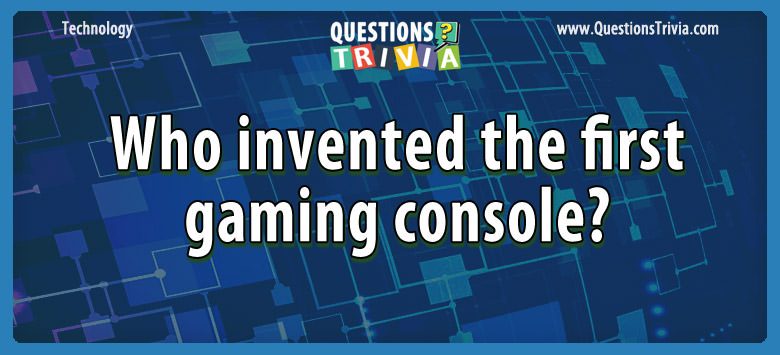
View Answer
Ralph H. Baer.
In 1951, Ralph H. Baer started working on the idea of a gaming console. Later in 1966, he succeeded in inventing the first video game.
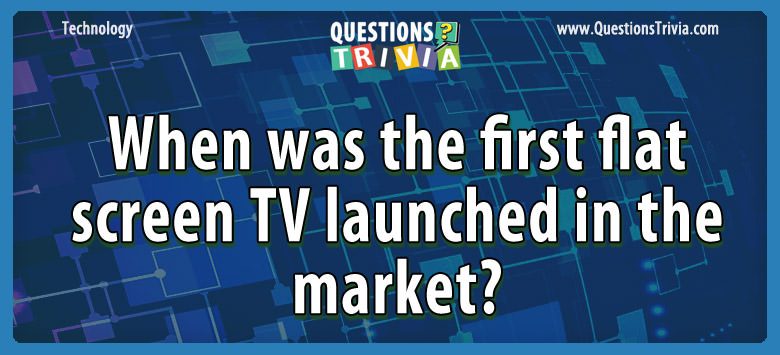
View Answer
1997.
In 1997, Sony and Sharp launched the first flat screen television. It was a 42- inch large screen TV that was manufactured by using Plasma Addressed Liquid Crystal (PALC) technology.

View Answer
CRT stands for Cathode-Ray Tube.
CRT is basically a vacuum tube which encloses a phosphorescent screen and electron gun/guns that helps display images on the television.
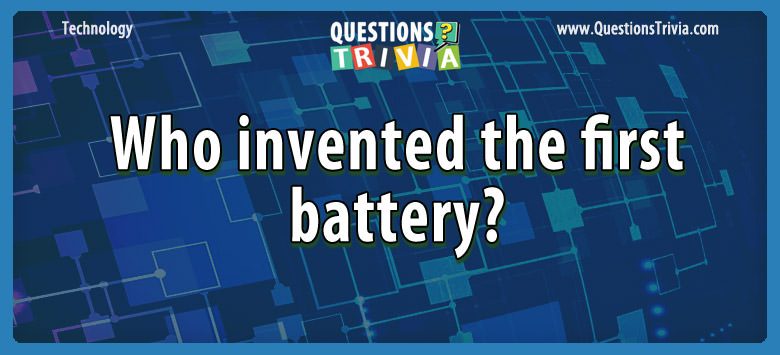
View Answer
Alessandro Volta.
In 1800, Alessandro Volta invented the first battery by using zinc and copper discs, which is also termed as a voltaic pile.
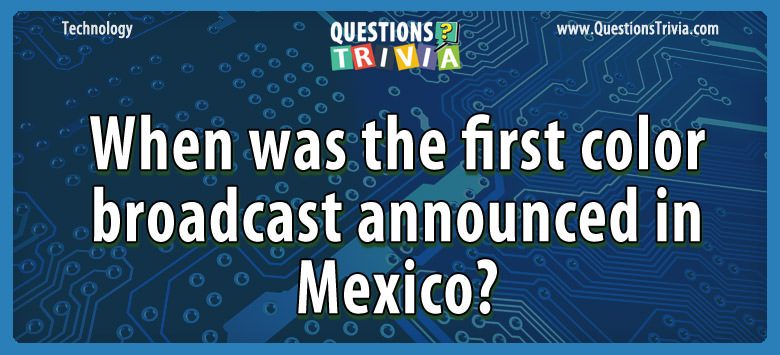
View Answer
8 February 1963.
In 1930, Guillermo Gonzalez Camarena invented the first color television in his own lab and sent it to the office of Mexican League of Radio Experiments in 1946. Later in 1963, the first color broadcast was announced by Gonzalez Camarena.

View Answer
Rene Panhard and Emile Levassor.
In 1887, Rene Panhard and Emile Levassor built their first motor car. This car contained a front engine, clutch, and transmission.
About Trivia Quizzes and Games
Experts say that when it comes to brainpower, you either use it or lose it. Playing trivia games regularly is one sure way to keep your mind active because it involves comprehension, cognition and memory skills. Questions are drawn from some of the most memorable events in history, science or popular culture. These quizzes are designed to be played in different formats: as an individual challenge, with a partner or as team play on game night. We construct our quizzes to present escalating challenges. Trivia games deal with facts. Every question included in our games has been checked for accuracy and relevance. You are free to quote them at your next gathering to show off some interesting facts you’ve picked up from playing trivia games. Doing trivia quizzes has also been shown to improve collaboration and communication skills, generate a healthy debate, relieve stress and promote harmony among many advantages. The more you play, the more you know, and you can focus on the topics that are of great interest to you.
